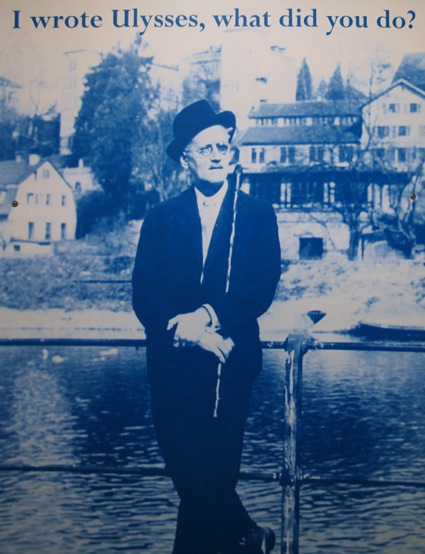Ins Netz gegangen am 5.7.:
- Does Philosophical Language Have to Be Difficult? | Blog of the APA → grant maxwell erklärt ziemlich kurz und schlüssig, warum philosophie manchmal schwierige sprache benutzen muss:
writers like G.W.F. Hegel or Alfred North Whitehead or Jacques Derrida weren’t simply writing works (which still stand as paragons of verbal complexity) to confuse or beguile their readers. They were creating new forms of language to widen the scope of what could be expressed. […] The process of generating meaning is a constant negotiation between our current world views, embodied in vast networks of words and other symbols, and the constraining facts of existence, both the material relations of the world and our own intrinsic characters. And the more we inquire into these apparently objective facts, the more we find that they are more like habits or tendencies susceptible to a startlingly broad range of possible constructions. The semiotic networks constituting our world views evolve, as ideas don’t exist in a vacuum, but are developed through a conversation that has been occurring for thousands of years, with each reply requiring a generation, or sometimes even centuries for its fullest expression. To abstract ideas from their historical context, and from the language developed to describe them in ever-greater nuance, would be to flatten the complexity of these concepts, which comprise the underlying modes of thought that have implicitly informed the more explicit historical occurrences.
- «Italien betreibt eine Fusion von Populismus und Technokratie» | NZZ → ein spannendes interview mit jan-werner müller über die herausforderung der antipluarlisten (populisten und technokraten) für die modernen demokratien
Beide scheinbar gegensätzliche Fraktionen sind letztlich Antipluralisten. Die Technokraten erklären, es gebe nur die eine rationale Lösung. Es brauche keine Debatte, auch keine parlamentarische Auseinandersetzung, weil es für vernünftige Menschen nichts zu diskutieren gebe. Die Populisten behaupten wiederum, es gebe nur den einen authentischen Volkswillen. Und sie seien die Einzigen, die ihn verstünden und verträten.
- Finnegans wachen donnerstags auf| a tempo → ein sehr sympathisches gespräch mit fritz senn, einem der besten joyce-kenner, über seine joyce-lektüren und ‑forschungen — und die zufälligkeiten des lebens
- Schule der Gewalt | Zeit → ute frevert hat einen schönen überblick über die geschichte der wehrpflicht (in deutschland) geschrieben
- Sind wir noch gute Europäer? | Zeit → jürgen habermas muss noch/mal wieder ran und den lust- und ideenlosen zustand europas und insbesondere der eu — und ihrer (nationalen) politischen eliten — scharfsinnig analysieren. zum beispiel:
Der Rechtspopulismus verdankt sich in erster Linie der verbreiteten Wahrnehmung der Betroffenen, dass der EU der politische Wille fehlt, handlungsfähig zu werden. Der heute im Zerfall begriffene Kern Europas wäre in Gestalt einer handlungsfähigen Euro-Union die einzige denkbare Kraft gegen eine weitere Zerstörung unseres viel beschworenen Sozialmodells. In ihrer gegenwärtigen Verfassung kann die Union diese gefährliche Destabilisierung nur noch beschleunigen. Die Ursache des trumpistischen Zerfalls Europas ist das zunehmende und weiß Gott realistische Bewusstsein der europäischen Bevölkerungen, dass der glaubhafte politische Wille fehlt, aus diesem Teufelskreis auszubrechen. Stattdessen versinken die politischen Eliten im Sog eines kleinmütigen, demoskopisch gesteuerten Opportunismus kurzfristiger Machterhaltung




